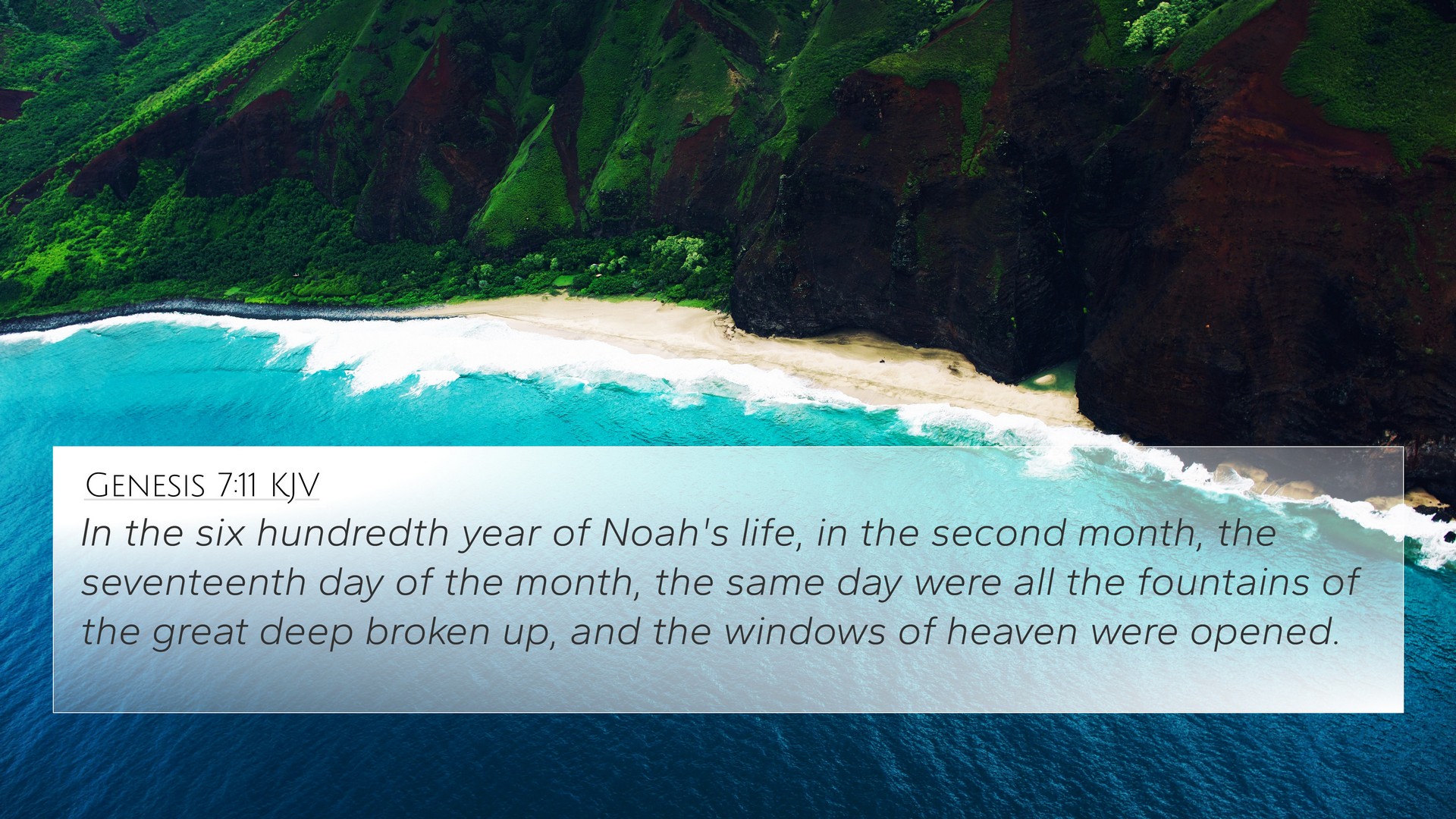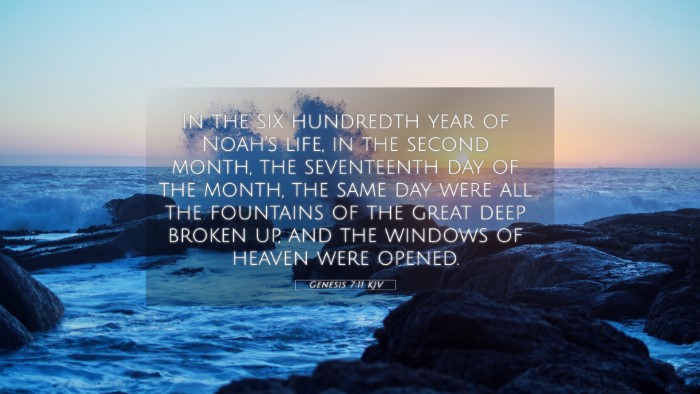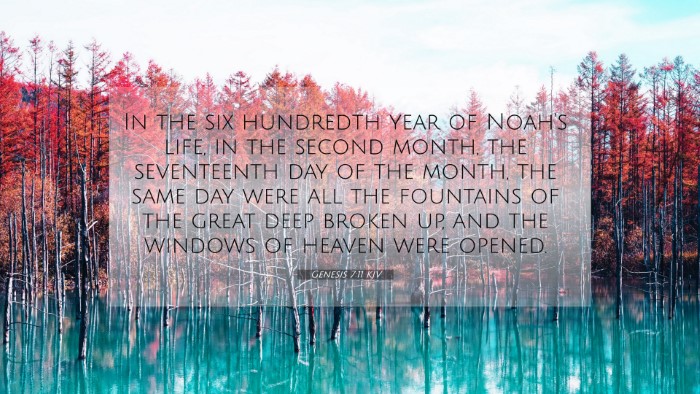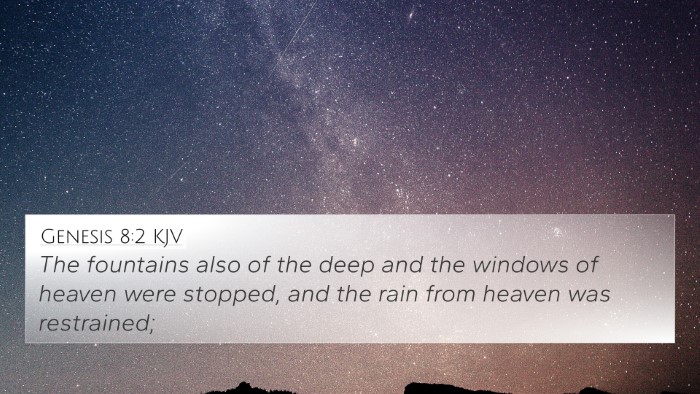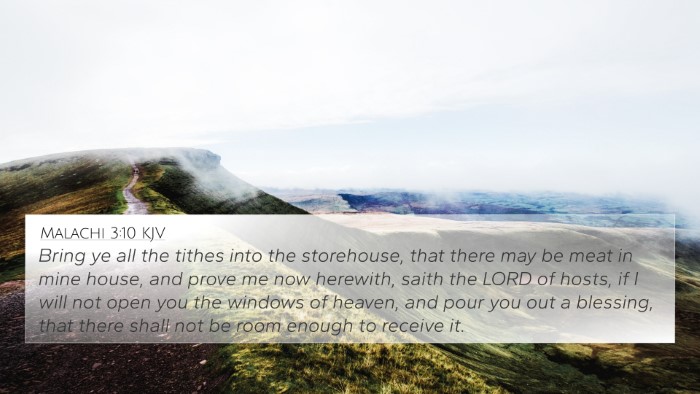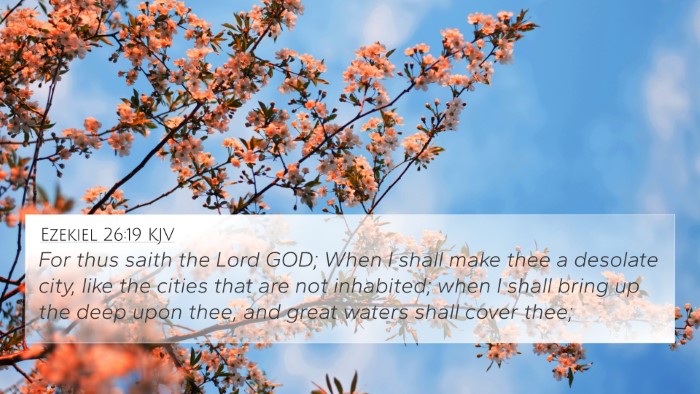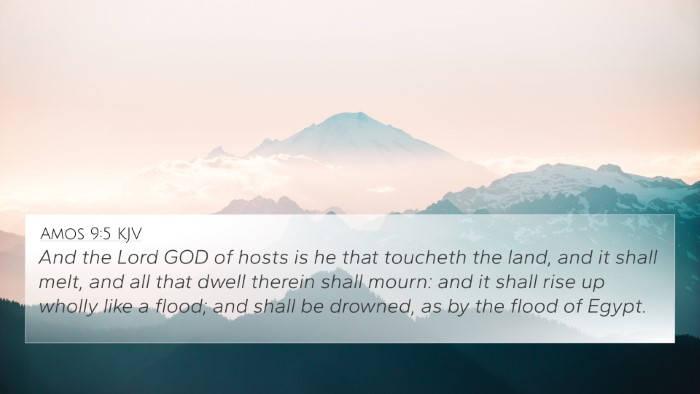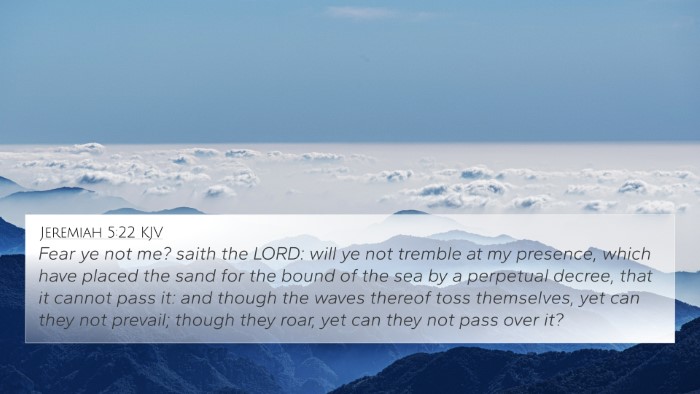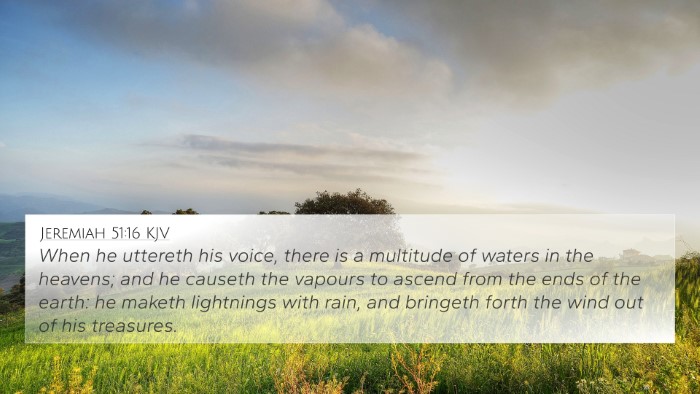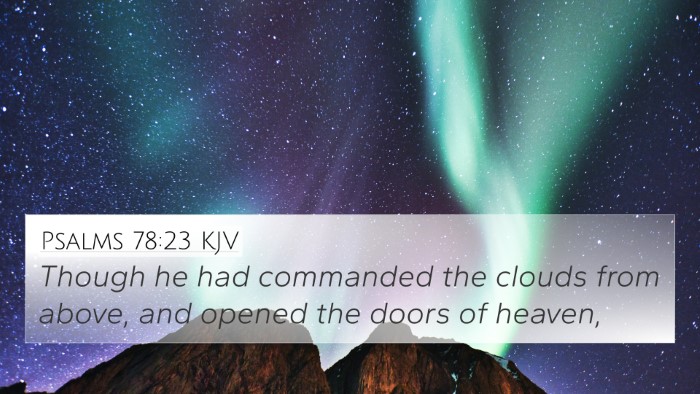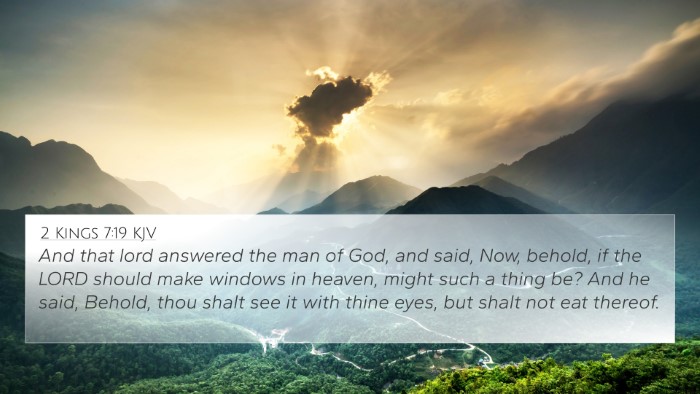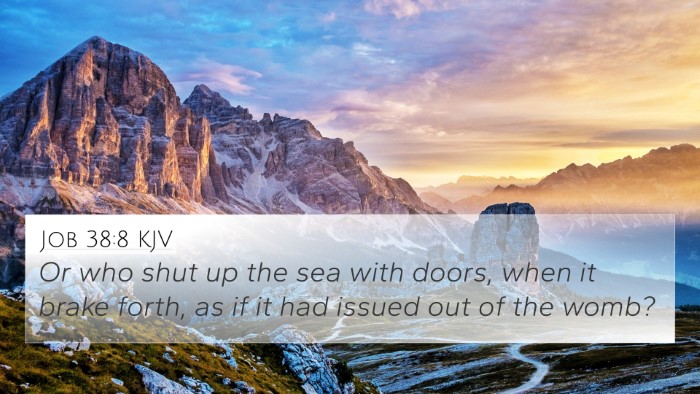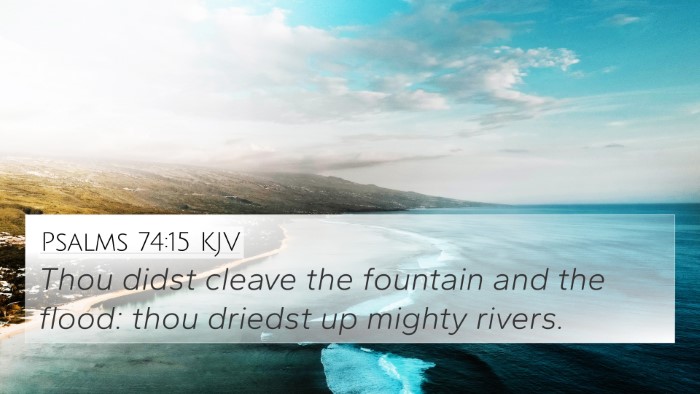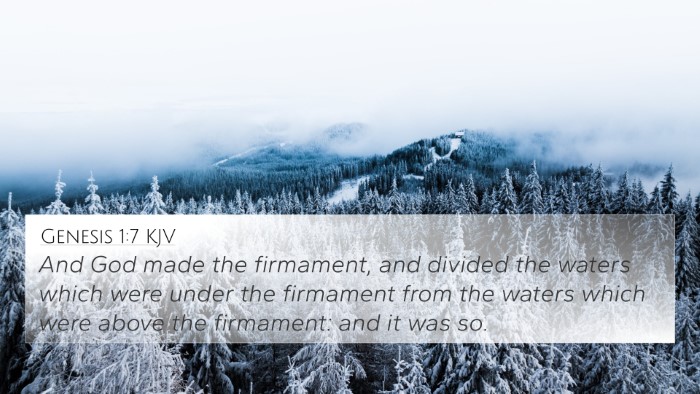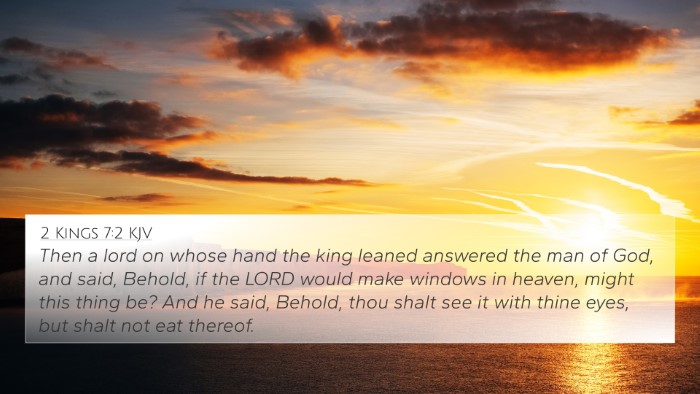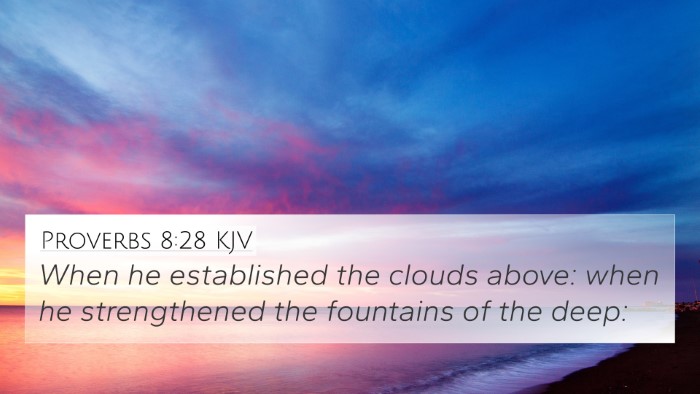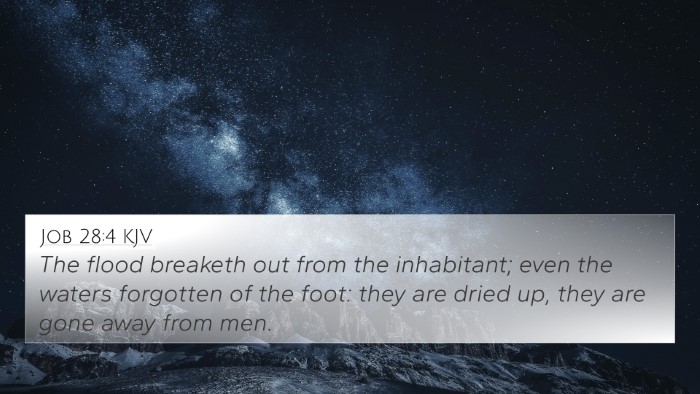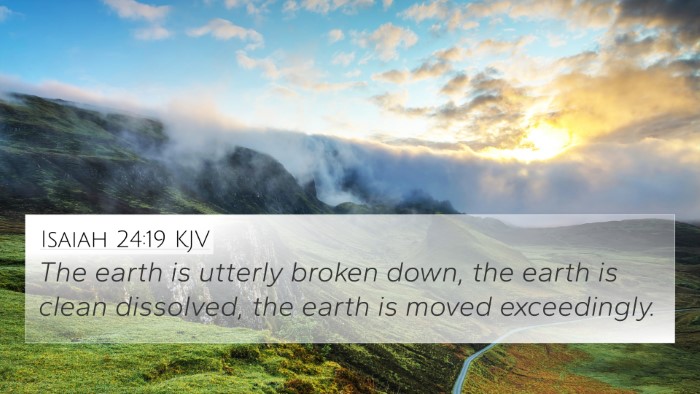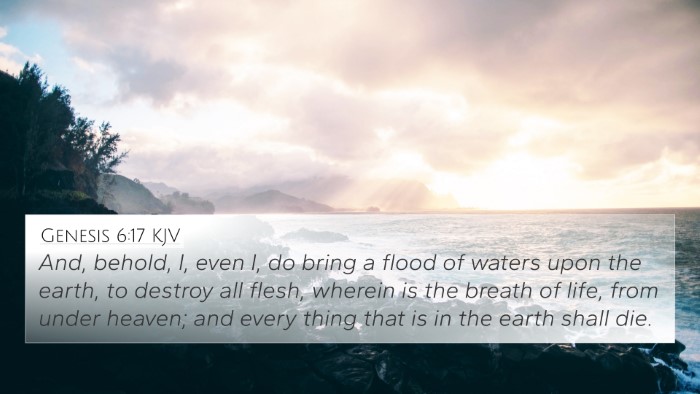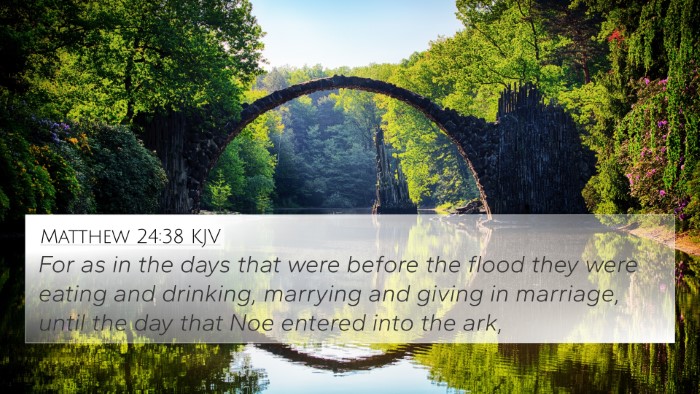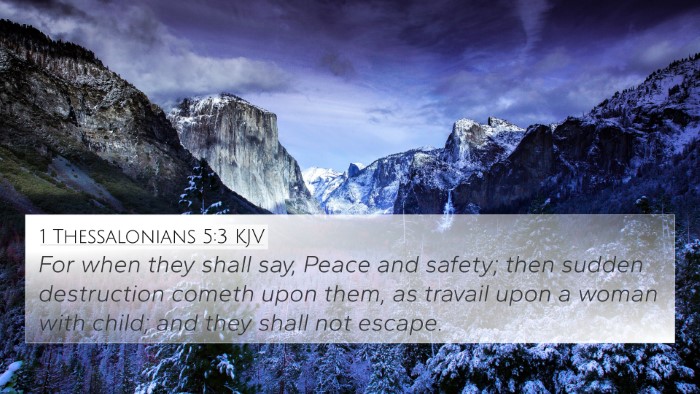Understanding Genesis 7:11
Genesis 7:11 states: "In the six hundredth year of Noah's life, in the second month, the seventeenth day of the month, the same day were all the fountains of the great deep broken up, and the windows of heaven were opened." This verse marks a significant moment in the narrative of Noah and the great flood, illustrating both divine judgment and mercy.
Verse Analysis
To comprehend the depths of Genesis 7:11, we will draw from insights of renowned public domain commentaries. The analysis highlights the interconnected themes of God's judgment, the nature of the flood, and the fulfillment of divine prophecy regarding Noah.
Contextual Background
As we delve into this passage, it’s important to consider the broader narrative surrounding Noah, the flood, and the impending judgment on human sinfulness. This verse introduces the climactic moment when God's plan for redemptive cleansing through the flood begins to unfold.
Matthew Henry’s Commentary
According to Matthew Henry, this verse signifies the commencement of God’s judgment upon a corrupt world. He notes that the "fountains of the great deep" likely refer to subterranean waters that were released, signifying an overwhelming force of nature aligned with divine intent.
Albert Barnes’ Notes
Albert Barnes emphasizes that the great flood was not just a natural disaster, but a significant divine intervention designed to purge the earth of wickedness. He elaborates on the phrase "the windows of heaven" as a metaphor for divine approval and an unparalleled release of rain, representing God's judgment paired with His mercy in seeking to preserve Noah and his family.
Adam Clarke’s Commentary
Adam Clarke's exegesis reveals that the “six hundredth year of Noah's life” signifies the fulfillment of years in which Noah had been faithful to God. Clarke points out the historical and prophetic importance of preserving Noah’s family as a remnant for future generations, establishing them as a renewed nation after the flood.
Key Themes and Theological Insights
Genesis 7:11 encapsulates several central theological themes:
- Divine Judgment: The flood serves as a depiction of God’s severe response to human sinfulness.
- God’s Sovereignty: The control over natural forces indicates God’s supreme authority, orchestrating events for His purposes.
- Preservation of Righteousness: Noah, as a righteous figure, embodies hope amid divine judgment; his preservation in the ark signifies God’s mercy.
- Symbolism of Water: Water, often associated with chaos in the Biblical narrative, here symbolizes both destruction and potential for renewal.
Bible Verse Cross-References
Genesis 7:11 is richly connected to several other Scripture passages, illustrating the thematic parallels that run throughout the Bible:
- Genesis 1:2: The earth was without form and void with the Spirit of God hovering over the waters.
- Genesis 6:5-8: These verses outline the wickedness of mankind and God’s decision to destroy creation except for Noah.
- Matthew 24:38-39: Jesus refers to the days of Noah as a warning for future judgment.
- 2 Peter 2:5: Refers to God sparing Noah while condemning the ancient world.
- Hebrews 11:7: Noah’s faith in building the ark is commended in the New Testament, indicating the spiritual significance of his actions.
- Psalm 29:10: The Lord sits enthroned over the flood, affirming His power over creation.
- Isaiah 54:9: God promises that He will not bring another flood to destroy the earth.
Connecting the Dots: Inter-Biblical Dialogue
The connections between Bible verses deepen our understanding of God's character and plan. The thematic parallels help us to grasp the multifaceted narrative of Scripture:
- The flood and baptism: 1 Peter 3:20-21 draws a correlation between the flood and Christian baptism, emphasizing salvation through judgment.
- God’s mercy and justice: Romans 1:18 speaks to God’s wrath against unrighteousness, paralleling the narrative of Noah with the New Testament teachings on justice.
- Preservation of a remnant: Similar themes are evident in the messages of the prophets (Jeremiah 30:11) who foretell both destruction and restoration.
Tools for Bible Cross-Referencing
Studying cross-references within the Bible can greatly enhance our understanding:
- Bible Concordance: A comprehensive listing of references can help identify connections between verses.
- Bible Cross-Reference Guide: Utilizing guides aids in finding thematic links throughout Scripture.
- Bible Reference Resources: Seek resources that focus on thematic studies to dive deeper into specific subjects.
Conclusion
Genesis 7:11 serves as a pivotal point in biblical history, demonstrating God’s justice and mercy through the lens of the flood narrative. Engaging with this verse and its cross-references enriches our understanding of divine principles that resonate throughout Scripture. Consequently, building connections through cross-referencing not only enhances our study but also reveals the cohesive narrative of God's dealings with humanity.
